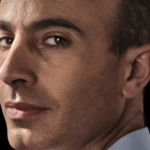
A man named Alan Nichols died after being hospitalized in Canada, a victim of euthanasia due simply to “hearing loss.” Now, his outraged family is demanding answers, while experts claim this is an increasing problem within the country facing people with disabilities.
The Associated Press reported that Nichols, 61, was hospitalized in June of 2019 over fears that he might be suicidal. However, he soon texted his brother, pleading with him to “bust him out.”
However, just one month later, Nichols was dead. He had been euthanized, with the reason on his application listed as “hearing loss.” His family went to police, but they ruled that Nichols’ euthanasia was justified, even though a euthanasia assessment filed by a nurse practitioner noted seizures, frailty, and “a failure to thrive.” Yet that explanation wasn’t good enough for Nichols’ family, who noted that with his history of mental illness, he couldn’t have truly understood the issue, and that he wasn’t suffering.
“Alan was basically put to death,” his brother Gary Nichols said.
People with disabilities are at serious risk of being euthanized, a threat made even worse considering they routinely do not have access to basic health care and other needs.
Catalina Devandas Aguilar, a lawyer from Costa Rica and the United Nation’s first Rapporteur on the Rights of Persons with Disabilities, wrote a scathing report on disability rights in Canada. “Persons with disabilities have to initiate very lengthy and onerous legal procedures to get their rights recognized,” she told CTV, adding, “[D]uring my visit I have noticed that discussions about the rights of persons with disabilities are still framed in terms of social assistance, rather than from a human rights-based approach… I have also noted significant disparities in the areas of accessibility and access to education, health, administration of justice, and social protection depending on where a person with disabilities lives in Canada.”
She also found numerous cases of people with disabilities pressured into assisted suicide.
“I have been informed that there is no protocol in place to demonstrate that persons with disabilities have been provided with viable alternatives when eligible for assistive dying,” she said. “I have further received worrisome claims about persons with disabilities in institutions being pressured to seek medical assistance in dying, and practitioners not formally reporting cases involving persons with disabilities.”
Assisted suicide routinely harms the most vulnerable people in society: the elderly, the disabled, the poor, and other minority groups. These groups routinely plead with lawmakers not to inflict assisted suicide on their communities, and they are consistently ignored. Canada is another example of just that — as people with disabilities are dying needlessly in greater and greater numbers, the country is not moving away from assisted suicide, but instead, looking to expand it even further.



